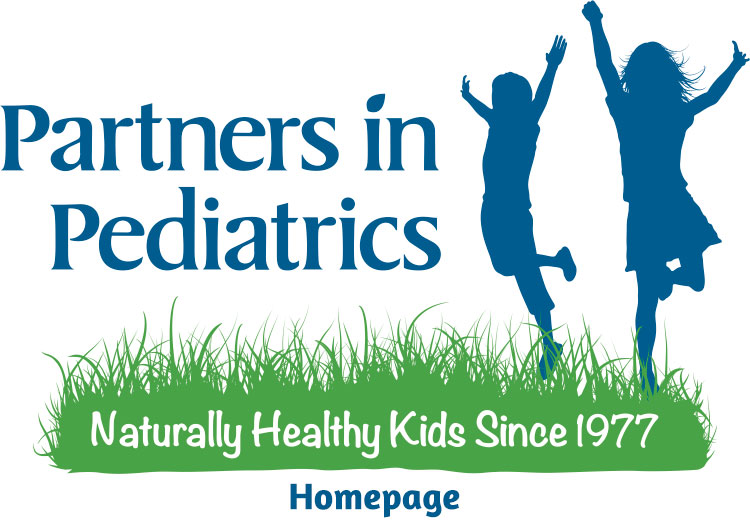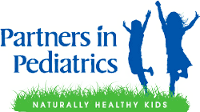So you have a newborn – Congratulations! As you know, there are so many things to think about, both during your pregnancy and once your baby is born, and nutrition is right up there. Nutrition needs will vary depending upon the age of your baby, but there is a consensus, by organizations such as the American Academy of Pediatrics (AAP) and the Centers for Disease Control and Prevention (CDC), that breastfeeding is the optimal source of nutrition through the first year of your baby’s life. Therefore, as your Denver pediatrician and medical home in the Mile High City, we would like to take this opportunity to address this important topic in Part One of this blog on infant nutrition. Part Two of this blog, which will follow later this month, will address the use of infant formula when breastfeeding is not an option. Remember, we are here to care for your baby and answer your parenting questions and concerns, whatever they may be!
The Benefits of Breastfeeding
Even before your due date, you will want to give consideration to the benefits of breastfeeding, which are numerous. In addition to being the recognized best source of nutrition for your little one (consult your integrative pediatrician regarding the need for any Vitamin D and iron supplements for your breastfeeding baby), breastfeeding can naturally help protect both you and your baby against some short- and long-term illnesses and diseases. Babies who are fed breast milk have a lower risk of:
- asthma,
- diabetes (type 2),
- eczema,
- gastrointestinal infections (diarrhea/vomiting),
- infections (ear, respiratory),
- inflammatory bowel disease,
- necrotizing enterocolitis (NEC) for preterm infants,
- Obesity, and
- sudden Infant death syndrome (SIDS).
Breastfeeding also has been found to help protect against:
- bacteremia,
- otitis media,
- urinary tract infection,
- late-onset sepsis in preterm infants,
- type 1 diabetes,
- lymphoma, leukemia, and Hodgkins disease, and
- milk allergy.
And the amazing benefits don’t end there! Mothers who breastfeed their infants have a lower risk of breast and ovarian cancers, type 2 diabetes and high blood pressure. Breastfeeding also helps moms
- by releasing hormones promoting mothering behavior,
- returning the uterus to its pre-pregnancy size more quickly,
- burning more calories, promoting a return to pre-pregnancy weight,
- delaying the return of menstruation, thereby helping keep iron in your body,
- keeping bones strong, and
- providing contraception (but ONLY within the first six months after birth and ONLY if you are exclusively breastfeeding and not giving your baby any other supplements and your period has not returned).
Perhaps the benefit you’ll recognize the most, though, is the the special bond you’ll feel for your baby, created by the warm and close physical contact of breastfeeding!
When and How Often to Breastfeed
Once you’ve made the decision to breastfeed, now what? The AAP recommends that babies be breastfeed exclusively for about the first four to six months of life. After that time, it is recommended that solid foods gradually be added to the baby’s diet, while continuing to breastfeed until at least twelve months of age or longer if desired by both the baby and the mom.
Breastfeeding should begin as soon as possible after birth, and usually within the first hour after birth. The AAP recommends that newborns be nursed whenever they show signs of hunger, which generally means eight to twelve times every twenty-four hours. As a general rule, newborns need to eat about every two to four hours to ensure that they get the necessary nutrition to grow. As a result, you may need to wake a sleepy newborn at times to make sure they feed–you can try patting, stroking, undressing or changing a diaper to help wake your baby.
Babies should be encouraged to feed as long as possible at each feeding and should be kept on the breast as long as they are actively suckling. Babies may indicate hunger, even before crying, by engaging in such antics as smacking their lips, making suckling motions with their mouths, moving their heads around in search of the breast, kicking and squirming or generally looking more alert. Be alert and responsive to these early signs of hunger! And here’s an important tip– even if your baby prefers one breast over the other, alternate the breast you offer first with each feeding session. That way, a full milk supply will be stimulated for both breasts.
To help judge whether your infant is getting enough milk while breastfeeding, consider the following:
- your baby should lose no more than seven percent of his or her birthweight in the first few days after birth before starting to gain weight again,
- your baby should have one or two bowel movements per day on days one and two, with blackish, tarry stools, and at least two stools that are beginning to appear greenish to yellow on days three and four. By five to seven days, stools should be yellow and loose, with small curds, and should number at least three to four per day,
- your baby should have six or more wet diapers per day, with nearly colorless or pale yellow urine, by five to seven days, and
- your baby should seem satisfied and happy for an average of one to three hours between feedings, while nursing the recommended eight to twelve times every twenty-four hours.
If you have any concerns about the process of breast feeding or the adequacy of your infant’s nutrition, we are happy to help, including providing a referral to a lactation consultant, if appropriate.
Mom’s Diet and Things To Avoid During Breastfeeding
A breastfeeding mom should make sure to eat a well-rounded diet with plenty of fruits, vegetables and whole grains. Be sure you are eating plenty of protein through either plant or animal sources, and that you are getting sufficient calories and nutrients to sustain both yourself and your nursing baby. Be cautious, however, about the following:
- Alcohol: Because alcohol passes through your milk to your baby, excessive or habitual use of alcohol (or any recreational drug) should be avoided while breastfeeding! (An occasional glass of wine or other alcohol is fine.) If you do decide to have an alcoholic beverage, it is best to do so right after you nurse or express milk. Allow at least two hours per drink or two before your next breastfeeding session or breast pumping session.
- Medications: Because some medications, including nonprescription substances, may be harmful to your baby, get approval from your doctor and your pediatrician before taking any medications while breastfeeding.
- Caffeine: Moderation is the key to drinking coffee, tea or caffeinated sodas or eating chocolate while breastfeeding! Breast milk generally contains less than one percent of the caffeine ingested by the mom. Try to drink no more than the equivalent of three cups of coffee per day, spread throughout the day. Consider drinking less if you notice your baby becoming more fussy or irritable.
- Mercury: Just as when you were pregnant, a breastfeeding mom should avoid fish high in mercury, such as swordfish, king mackerel, tilefish and shark. When you do eat fish (which is a great way to get protein and omega-3 fatty acids), try for canned light tuna (rather than albacore tuna, which contains more mercury), shrimp, salmon, pollock and catfish. If you do eat albacore, limit it to six ounces a week or roughly one meal.
As your favorite Denver Metro integrative pediatrician, we hope the above information is of assistance to you in assessing and meeting your infant’s nutritional needs! Even if breastfeeding seems difficult at first, please remember it generally gets easier with practice. And, of course, remember that we are always ready and willing to help you with this important piece of your infant’s care and development. Happy bonding!






Leave a Reply